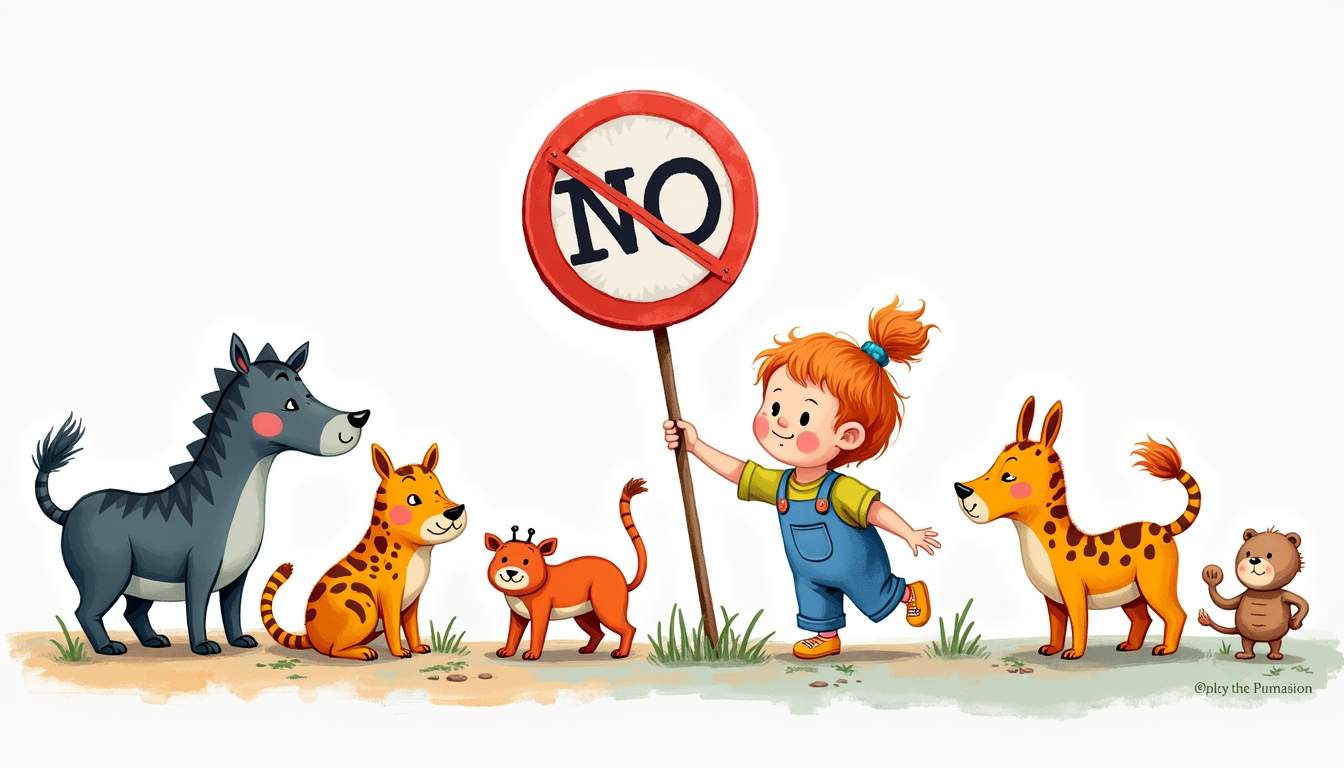The first day of childcare can be an emotional rollercoaster for both parents and children. As the clock ticks down to drop-off time, feelings of anxiety, excitement, and sadness can bubble to the surface. This transition marks a significant milestone in a child’s life, and it can be equally challenging for parents who must navigate their own feelings of separation. However, with the right preparation and mindset, this day can be a positive experience for everyone involved. Here are some strategies to help ease the transition and prevent tears on that all-important first day.
Understanding the Emotions
Recognizing Your Child’s Feelings
Children often experience a mix of emotions when starting childcare. They may feel excitement about meeting new friends and engaging in fun activities, but they can also feel anxious about being away from their parents. It’s essential to acknowledge these feelings and validate them. Let your child know that it’s okay to feel nervous and that many children experience similar emotions when starting something new.
Using simple language, explain what they can expect on their first day. Talk about the fun activities they will do, the toys they will play with, and the new friends they will meet. This helps to create a positive association with the childcare environment, making it less intimidating.
Understanding Your Own Emotions
Parents often have their own set of emotions to navigate. Feelings of guilt, worry, and even relief can surface as you prepare to leave your child in someone else’s care. It’s important to recognize these feelings and understand that they are a normal part of the process. Taking a moment to reflect on your emotions can help you approach the situation with a clearer mindset.
Consider discussing your feelings with a trusted friend or partner. Sharing your concerns can help alleviate some of the anxiety you may be feeling. Remember, it’s perfectly normal to feel a mix of emotions as you embark on this new chapter in your child’s life.
Preparing for the Big Day
Visit the Childcare Center Together
Before the first day, take the time to visit the childcare center with your child. This familiarization can significantly reduce anxiety. During the visit, walk around the facility, explore the play areas, and meet the caregivers. Allow your child to ask questions and express any concerns they may have. This visit can help them feel more comfortable and secure in their new environment.
Would you like to check out one of the top-rated childcares in New Jersey? Schedule a tour with us!

Encourage your child to interact with the caregivers during the visit. This helps to build trust and establish a connection before the first day. A friendly face can make all the difference when it comes to easing separation anxiety.
Establish a Goodbye Ritual
Creating a special goodbye ritual can provide comfort for both you and your child. This could be a simple hug, a secret handshake, or a phrase that you say to each other. Having a consistent routine helps children understand that while you may be leaving, you will always come back.
Make sure to keep the goodbye short and sweet. Lingering can often lead to increased anxiety for both parties. A quick, confident farewell can help set a positive tone for the day ahead.
Prepare a Comfort Item
Consider allowing your child to bring a comfort item from home, such as a small stuffed animal or a family photo. This item can serve as a source of comfort during moments of uncertainty. Knowing they have something familiar nearby can help ease their nerves and provide reassurance throughout the day.
Make sure to explain the purpose of the comfort item to your child. Let them know that it’s a special reminder of home and that they can hold onto it whenever they feel a little scared or lonely.
On the Day of Drop-Off
Stay Calm and Positive
Your demeanor plays a significant role in how your child will react to the situation. If you project confidence and positivity, your child is more likely to feel secure. Take a few deep breaths before you leave home to calm your nerves. Remember, your child will pick up on your emotions, so maintaining a positive attitude can help them feel more at ease.
Use encouraging words and remind your child of the fun activities they will get to enjoy. Highlight the exciting aspects of the day, such as playing with new toys or making new friends. This can help shift their focus from anxiety to anticipation.
Timing is Everything
Choosing the right time for drop-off is crucial. Aim to arrive when the center is bustling with activity, as this can help distract your child from the separation. If possible, try to avoid busy times when children are particularly upset or when caregivers are preoccupied. A calm environment can make the transition smoother.
Additionally, try to arrive a little early so you can spend some time together before saying goodbye. This extra time can help your child acclimate to the environment and feel more comfortable before you leave.
Be Consistent with Pick-Up Times
After drop-off, consistency is key. Make sure to pick your child up at the same time each day, which helps them develop a sense of security and routine. When they know what to expect, it can ease their anxiety about being away from you.
When you pick them up, be enthusiastic and ask about their day. Encourage them to share their experiences and feelings. This not only reinforces the positive aspects of childcare but also strengthens your bond as you navigate this transition together.
Dealing with Tears and Separation Anxiety
What to Do If Your Child Cries
If your child does cry during drop-off, it’s important to remain calm and composed. Many children experience tears during their first few days, and it’s a natural part of the adjustment process. Acknowledge their feelings and reassure them that it’s okay to be sad. Let them know that you will be back to pick them up later.
It can be helpful to have a designated caregiver who can comfort your child after you leave. This person can help distract them and engage them in activities to ease their transition. Trust that the caregivers are trained to handle these situations and will provide the support your child needs.
Encouraging Independence
Encouraging your child’s independence can help reduce separation anxiety over time. Allow them to explore new activities and socialize with other children. This can help them build confidence and develop a sense of autonomy. Celebrate their achievements, no matter how small, to reinforce their independence.
Engage in activities at home that promote self-sufficiency, such as dressing themselves or helping with simple chores. This not only fosters independence but also prepares them for the responsibilities they will encounter in childcare.
Would you like to check out one of the top-rated childcares in New Jersey? Schedule a tour with us!
Communicate with Caregivers
Establishing open communication with your child’s caregivers is essential. Share any concerns you may have and ask for updates on your child’s progress. Caregivers can provide valuable insights into how your child is adjusting and offer tips for making the transition smoother.
Regularly check in with the caregivers to discuss your child’s experiences. This collaborative approach can help you feel more connected and informed about your child’s day-to-day life in childcare.
Long-Term Strategies for Success
Building a Routine
Establishing a consistent daily routine can help children feel secure and confident in their environment. Routines provide predictability, which is especially important for young children. Create a morning routine that includes time for breakfast, getting dressed, and discussing the day ahead. This sets a positive tone and prepares them mentally for the day.

Incorporate a bedtime routine as well, which can help your child wind down and feel secure before sleep. Consistency in daily routines fosters a sense of stability that can ease anxiety and promote emotional well-being.
Encouraging Social Connections
Encouraging social connections outside of childcare can also help your child adjust. Arrange playdates with other children from the center or engage in community activities that allow them to socialize. This not only helps them build friendships but also reinforces the idea that being around other children can be enjoyable and rewarding.
When children feel comfortable interacting with their peers, they are more likely to embrace their time in childcare and develop positive relationships with their caregivers.
Recognizing Progress
Celebrate your child’s progress, no matter how small. Acknowledge their bravery in facing new experiences and reassure them that it’s okay to feel a mix of emotions. Positive reinforcement can help build their confidence and encourage them to embrace new challenges.
Keep a journal of their experiences, noting milestones and achievements. This can serve as a reminder of how far they’ve come and provide encouragement during tougher days. Sharing these moments with your child can also help them reflect on their growth and resilience.
Conclusion
The first day of childcare is a significant milestone that can be filled with a range of emotions. By understanding the feelings involved, preparing adequately, and implementing strategies to ease the transition, both parents and children can navigate this experience with confidence. Remember, it’s normal for tears to flow, but with patience, love, and support, this transition can lead to a world of new opportunities and friendships for your child.

Ultimately, the goal is to foster a positive environment where your child feels secure, valued, and excited about their new adventure. Embrace the journey, and know that with time, both you and your child will adapt to this new chapter in your lives.










